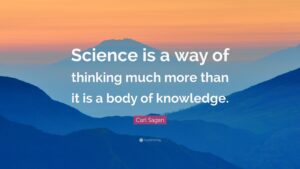
In an age dominated by rapid technological advancements and evolving societal norms, the wisdom encapsulated in timeless philosophical quotes remains profoundly relevant. These quotes, originating from diverse eras and thinkers, offer insights that continue to shape modern thinking and personal growth. This article explores the impact of such philosophical wisdom on contemporary perspectives and decision-making.
1. The Enduring Relevance of Philosophical Quotes
Philosophical quotes from figures like Socrates, Aristotle, and Confucius have transcended time, providing guidance that remains pertinent in today’s world. Their wisdom often addresses fundamental aspects of human nature, ethics, and existence, which are as relevant now as they were centuries ago. For instance, Socrates’ declaration, “The unexamined life is not worth living,” challenges individuals to reflect on their values and purpose, encouraging a deep introspection that is crucial in our fast-paced, often superficial society.
2. Influence on Personal Development
Philosophical quotes significantly impact personal development by fostering self-awareness and critical thinking. Take, for example, Friedrich Nietzsche’s assertion, “He who has a why to live can bear almost any how.” This quote emphasizes the importance of having a sense of purpose, which is essential for overcoming life’s challenges. In modern self-help and motivational contexts, such insights provide a framework for personal growth and resilience.
3. Shaping Ethical Perspectives
Ethics and morality are central themes in philosophy, and timeless quotes offer valuable perspectives on these subjects. Immanuel Kant’s principle, “Act only according to that maxim whereby you can, at the same time, will that it should become a universal law,” encourages individuals to consider the broader implications of their actions. This quote continues to influence contemporary debates on ethical behavior, particularly in business and personal interactions, by promoting the idea of universal moral principles.
4. Guiding Decision-Making
In decision-making, philosophical quotes provide a reflective pause that can influence choices. Aristotle’s concept of the “golden mean,” which advocates for moderation and balance, is particularly relevant in a world often characterized by extremes. This principle helps individuals navigate between excess and deficiency, offering a balanced approach to personal and professional decisions.
5. Impact on Modern Leadership
Leadership principles can also be informed by philosophical wisdom. The quote “The only thing we have to fear is fear itself,” attributed to Franklin D. Roosevelt but rooted in philosophical thought, underscores the importance of courage and resilience in leadership. Modern leaders can draw on such insights to inspire and guide their teams, particularly in times of uncertainty and change.
6. Fostering Emotional Intelligence
Philosophical quotes contribute to the development of emotional intelligence by encouraging empathy and self-reflection. For example, the Stoic philosopher Marcus Aurelius’ advice, “You have power over your mind – not outside events. Realize this, and you will find strength,” teaches the value of inner control and emotional resilience. In contemporary settings, such wisdom aids in managing stress and cultivating a positive mindset.
7. Encouraging Societal Reflection
On a broader scale, philosophical quotes prompt societal reflection and discourse. Plato’s idea that “Justice means minding your own business and not meddling with other men’s concerns,” challenges individuals and societies to consider the balance between personal freedom and social responsibility. This reflection is crucial in addressing current social and political issues, encouraging a more thoughtful and balanced approach to societal challenges.
8. Integrating Philosophy into Daily Life
Integrating philosophical quotes into daily life can enhance personal and professional experiences. By reflecting on and applying these insights, individuals can develop a more profound understanding of themselves and their interactions with others. Whether it’s through meditation, journaling, or discussions, the application of philosophical wisdom can lead to more intentional and fulfilling lives.
9. Conclusion
Timeless philosophical quotes offer a wealth of wisdom that continues to influence modern thinking. Their impact is evident in personal development, ethical decision-making, leadership, and societal reflection. By embracing these insights, individuals can cultivate a deeper understanding of themselves and the world around them, leading to more meaningful and thoughtful lives. As we navigate the complexities of contemporary life, the enduring relevance of philosophical wisdom remains a guiding light, offering clarity and perspective in an ever-changing world.

